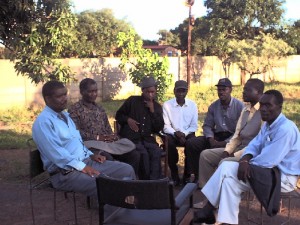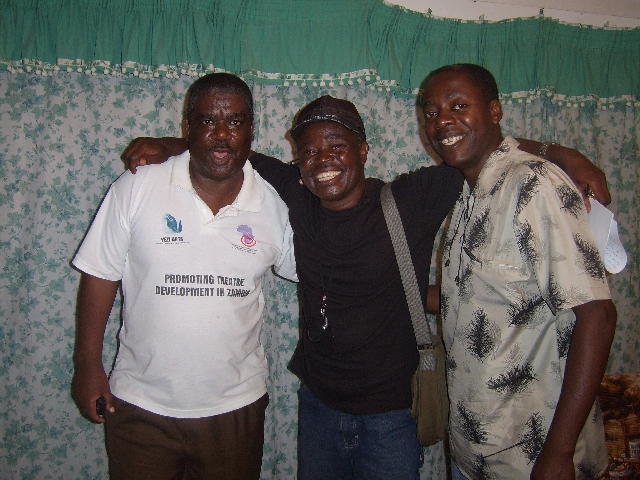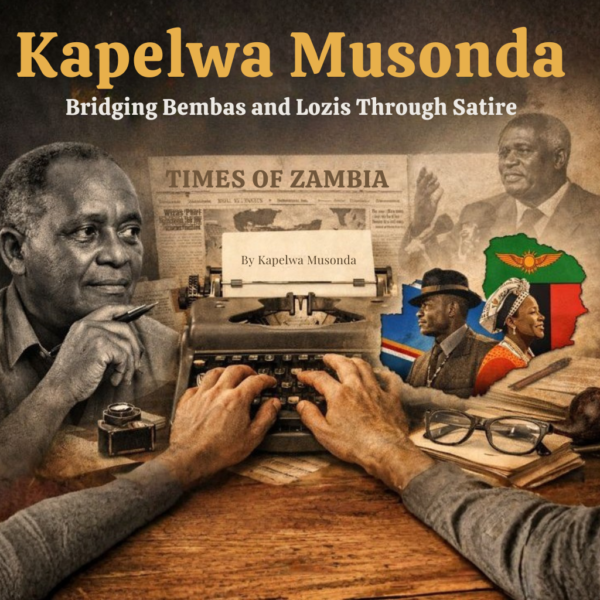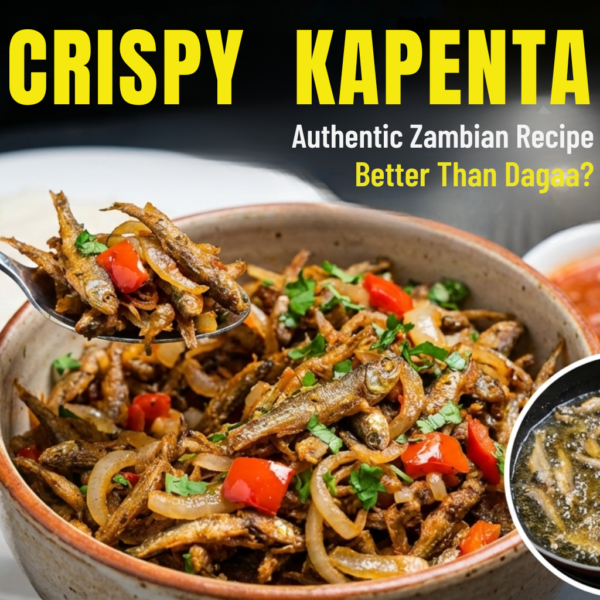
When all the songs for the “Ubwinga” music album had been recorded – ten of them in number, including two instrumental versions of two of the songs – we sat down to review them in order to decide whether their quality was good enough for them to be commercially presented to the public.
Photo: (L-R): John Katebe, Rocky Banze Mushika ("Papa"/"Rocky"), John Mulemena, Busco Mumba ("Blower"), Dickson Mponda, Joseph Mbaita Mutemba ("José") and Gift Chisha.
We noticed that on a number of songs, the drum section was not in sync with the other instruments. The vocals were also discordant in a few places. Although one or two songs were only marginally flawed, we decided that it was better to bring all the songs to the same standard of excellence.
We considered the option of redoing the drums and voices but concluded that we would do a better job if we started from scratch. The advantage of this was that we could perfect a more harmonized sound if we spent time together rehearsing outside the studio for a month or so. We were not in any hurry to publish the music.
We agreed that to achieve our purpose, we should form a full musical band consisting of three guitarists and a drummer. Joseph volunteered to bring in two members of the defunct “Mulemena Boys.” These were Gift Chisha, a left-handed bassist and Busco Mumba ("Blower"), a drummer. Rocky moved over to the rhythm guitar while Joseph took up the role of lead guitarist.
We secured a venue at the Buchi shopping centre for conducting private rehearsals. The band commenced its programme of rehearsals but I could not continue with the band due to personal reasons. Because I had a critical role to play in our plans to re-record the songs, the exercise was never done. Sadly, all the three musicians passed on before we could get back together to record the music.
Fortunately, the original recording of our music has survived. Some day when the money becomes available, we hope to polish these songs and record them again.
In this account, I have mainly dealt with events that took place while I was with the band. Hopefully, in future, John will deal with his experiences with the band after I had left the group.
From the point of view of achieving our set objectives, my collaboration with John and the other members of the team was very successful. I will briefly discuss some of the factors that in my opinion contributed to this success.
First and foremost was the fact that we were united by a genuine love of music. Among us were those who had spend most of their life playing music for a living but also those who had enjoyed singing and composing songs in the privacy of their homes.
Another factor is that we were all committed to a spirit of open dialogue about all pertinent issues to do with the music project. Nothing was done without prior discussion and agreement. Where there was a difference of opinion, we went by the consensus of the majority, except for those issues where specific guidelines had been firmly laid down.
For instance, we had agreed that all songs should be composed by John Sendama and that there should be no debate on this issue. Those with ideas for new songs were encouraged to keep them for a future album.
The individual roles and responsibilities were well defined. Everyone knew what was expected of them. Each person kept to their defined roles. This did not, however, mean that members could not contribute ideas to another member’s execution of his role. I was free to sit with John when he was writing his songs to contribute ideas to be incorporated in the songs. John appreciated positive contributions to his songs. At no point did we experience any conflict regarding song writing.
We all shared a passion for excellence. We were driven by the need to achieve a high standard of music. We were all prepared to put in as much effort as we could to ensure that our product competed with the best in the field.
In this regard, we regarded self-critiquing and external critiquing as essential aspects of our search for excellence. We would spend hours on end listening to our recorded music and noting points of imperfection. We would also share our music with various friends to get their opinions of the standard of our music.
One of the best critiques we got was from Emmanuel Jagari Chanda, a lead member of the WITCH, one of the greatest Zambia bands of the 70/80s. Jagari is also a trained music teacher.
Jagari sat down with us to listen to our music song by song and to give us his comments on both the strong points and the weak points of each song. His overall impression was that we had created music of a very high standard. There were, however, weaknesses which had to be addressed in order to bring it to a publishable standard.
Jagari was surprised that this standard of work should come from people who were never known to be musicians. Jagari had started his music career while he was still in secondary school with us. John, Jagari and I had all been in the same class throughout our secondary school years.

One of the most important contributing factors to the success of our collaboration was the high standard of our interpersonal relationships. We had respect for each other and appreciated each other’s strengths while accepting each other’s individual weaknesses. We were committed to supporting each other in all areas that affected our performance as a group.
Before concluding my account of the Madalas music recording experience, I would like to state that we had great fun while working on our music. Our meetings were characterized by a lot of laughter and story telling. John and I even developed our own special type of humor.
One of our favorite jokes was that we should not publish the music to avoid the fate of past musicians. We observed that most Zambian musicians had died after releasing their recorded music. We, therefore, joked that in order for us to live on, we had to keep the project at the studio recording level.
About those who criticized us unfairly, we joked that we should ask them to compose their own music to criticize.
John agrees with me that the Madalas music recording project represents one of our happiest past experiences.
I keep looking forward to the day that we can perfect our songs so that we can make them available to the public. We owe it to everyone who participated in this project to leave this music as a testament of what team work can achieve
Imbeka (Angel) – by Madalas Band:
[audio:https://kitweonline.com/wp-content/uploads/2011/09/Imbeka-Keyboard-Version-Segment-3.mp3|titles=Imbeka – Keyboard Version – seg 3] BEFORE
[audio:https://kitweonline.com/wp-content/uploads/2011/02/Madalas-Band-7-Imbeka-Angel.mp3|titles=Madalas Band – 7 Imbeka (Angel) – KitweOnLine] AFTER

